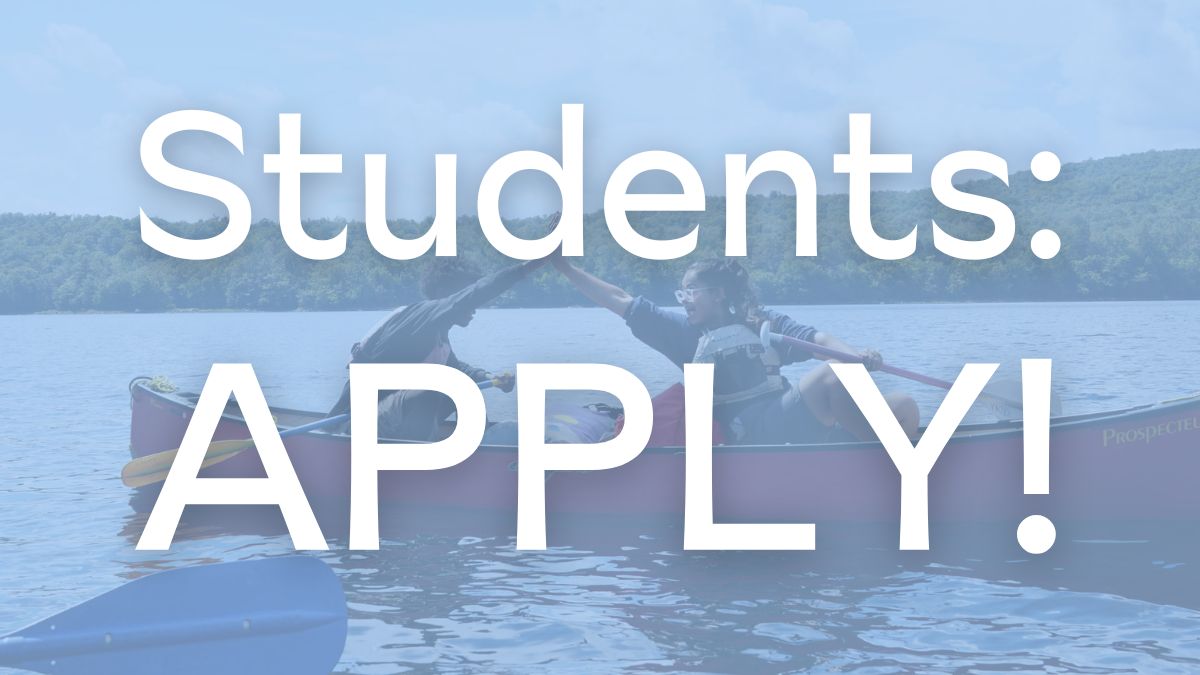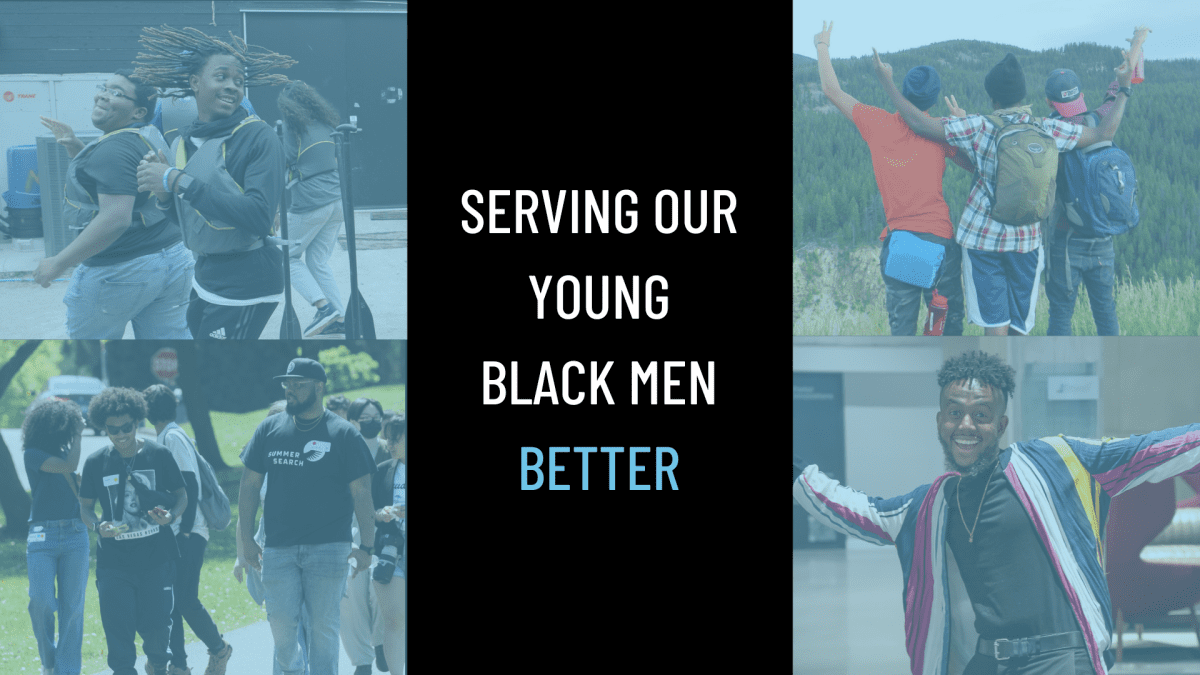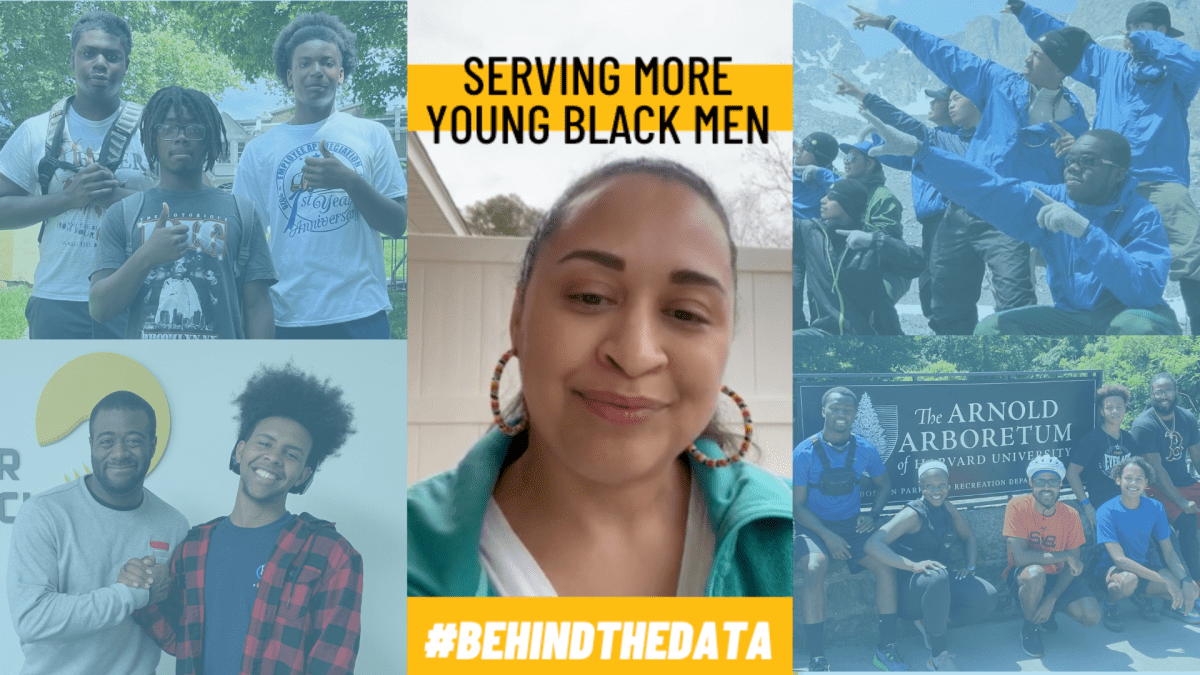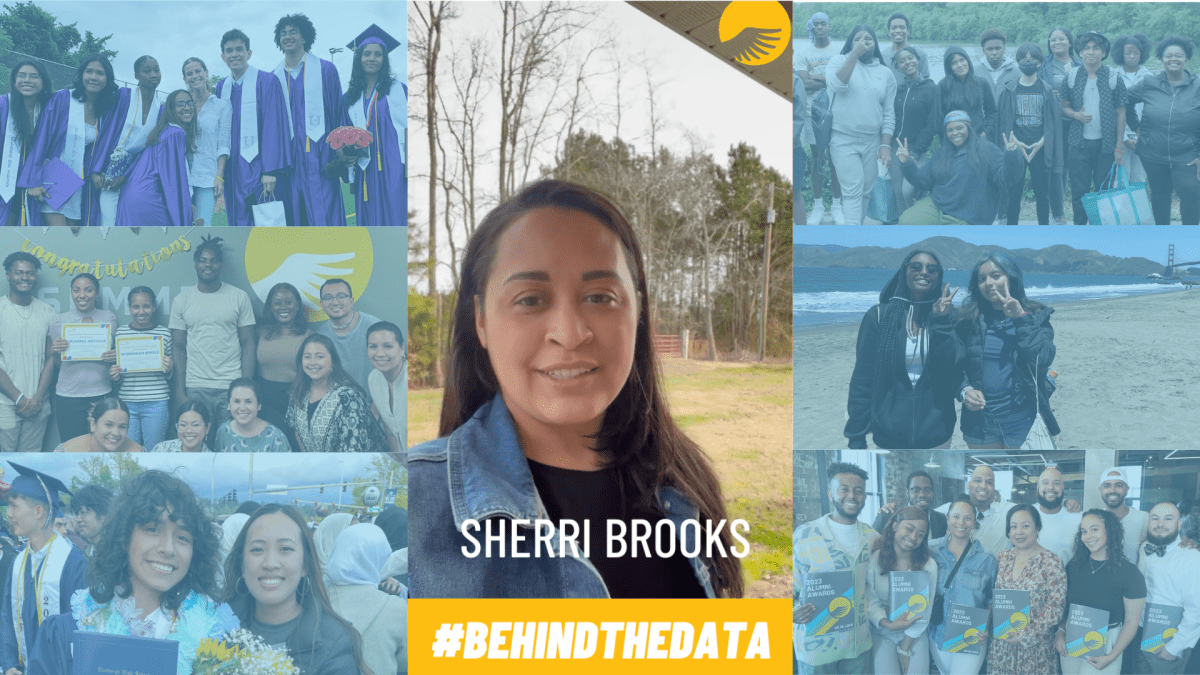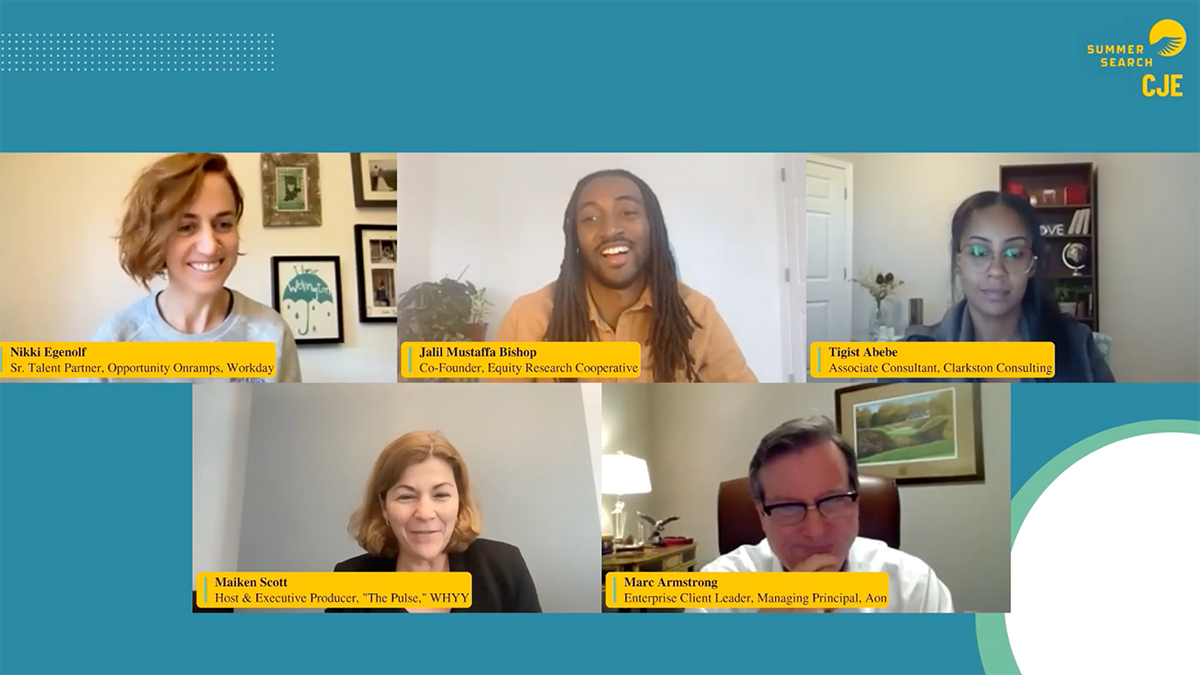
In Summer Search’s seventh iteration of our Championing for Justice and Equity (CJE) series, we examined the Student Debt Crisis and its impact on people (especially People of Color) and organizations.
在 Unclog Student Debt From Your Talent Pipeline, our panel of financial experts, social justice researchers, and company leaders explored the history and racial context around the student debt crisis, and shared solutions for students, professionals, and employers to manage, attack, and ultimately dismantle student debt.
作为 Dr.Jalil Mustaffa Bishop, Co-Founder of the Equity Research Cooperative, reminds us, the national movement for student debt reform began at the grassroots level, with individual people speaking up and demanding change:
“Understanding the power of your voice. Student debt cancellation did not start in Congress, it started from a very small group of borrowers saying that they’re not paying this debt because they thought it was unethical and predatory, and that launched this movement that brought us to today.”
We invite you to watch the full conversation and read the selections and resources below.
If you’re having trouble viewing the video, you can watch on Summer Search’s Vimeo.
The Conversation
- 00:00 – 02:28: Welcome – Tracy Motley
- 02:29 – 04:10: Panel Introductions – Maiken Scott
- 04:11 – 17:10: Jalil Mustaffa Bishop, Ph.D.
- 17:11 – 24:55: 蒂吉斯特·阿贝贝
- 24:56 – 32:30: Marc Armstrong
- 32:31 – 38:10: Nikki Egenolf
- 38:11 – 51:50: Panel Discussion + Q&A
- 51:51 – 55:54: Closing – Tracy Motley
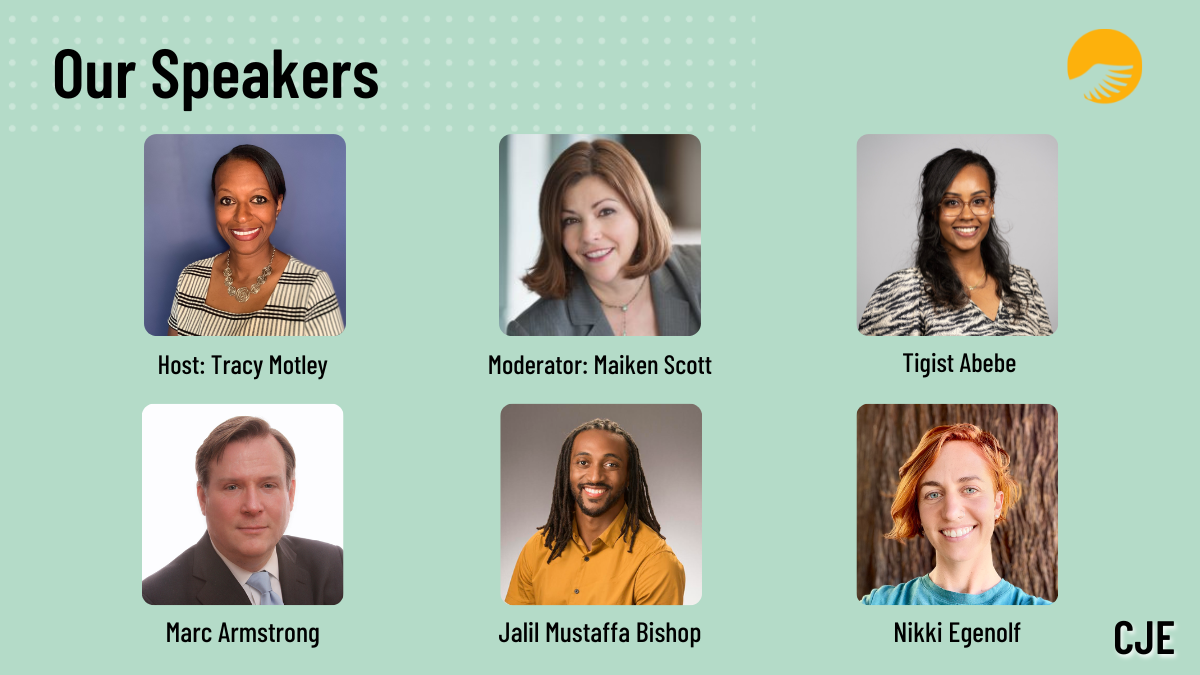
Our speakers for 'Unclog Student Debt From Your Talent Pipeline.'
Selections
特蕾西·莫特利
Educator, Episcopal Academy. Summer Search Philadelphia Advisory Board Member. Chair, CJE Committee.
“The cost of college has risen significantly since 1980. The first federal student loans became available in 1958. The goal of income driven repayment programs, introduced in 1994, was student debt reduction. And the push for student loan debt cancellation started during the Occupy Wall Street movement in 2012. In short, student loan debt and student loan debt cancellation are not new issues, but they do have a disproportionate impact on Students of Color.“
Learn More: Read about the growth and evolution of the student debt cancellation movement.
Maiken Scott
Host & Executive Producer, “The Pulse,” WHYY.
“Student debt is important for people’s well-being, for their future, for their ability to buy a home, to build wealth, and it also has a major impact on people’s health and mental health – its such a cause of stress in the lives of so many people.”
Learn more: Check out the growing list of companies offering to pay student loans for employees.
Jalil Mustaffa Bishop, Ph.D.
Independent Researcher. Co-Founder, Equity Research Cooperative.
“The student debt crisis is a symptom of this larger Trifecta of Racism…Part of understanding the student debt crisis is also understanding the movement to make college more affordable and free. We can measure that impact because we can see [debt] being cancelled in billions and we can hear it in the stories from the borrowers we work with around what this relief means to them.”
Learn More: Explore Dr. Bishop’s study ‘Jim Crow Debt: How Black Borrowers Experience Student Loans’. Plus, see how Ohio State is using their endowment to eliminate student loans within the decade.
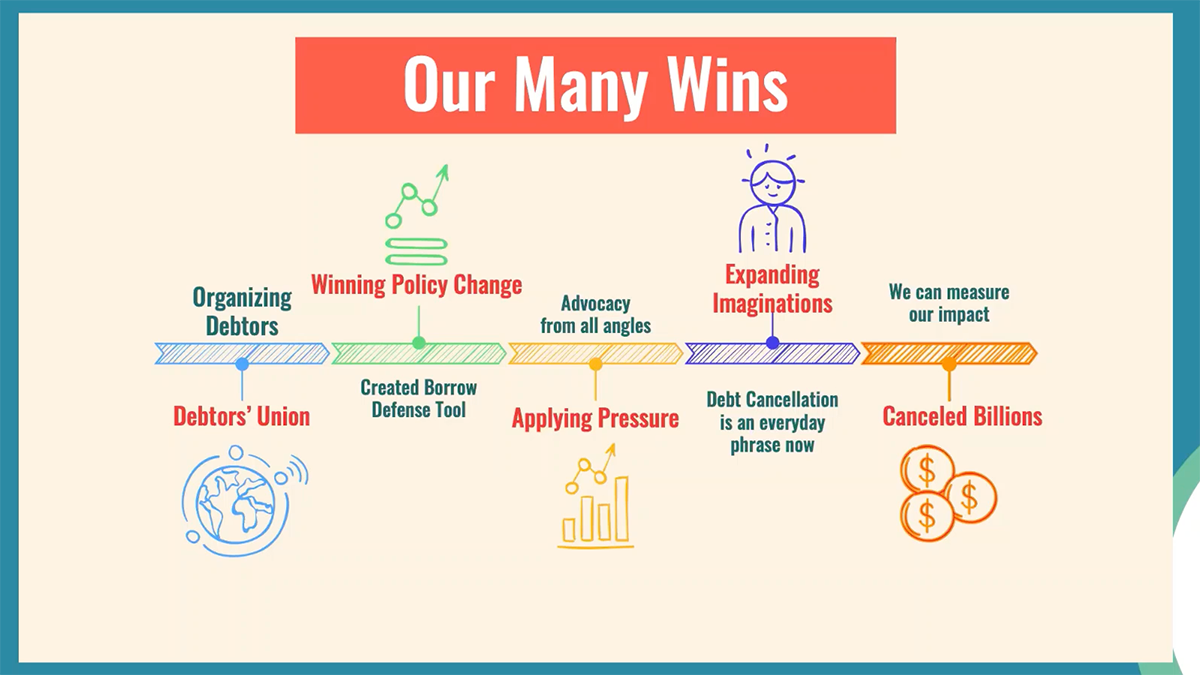
Dr. Jalil Mustaffa Bishop highlights the many wins of the movement to organize borrowers to fight for themselves around student debt.
蒂吉斯特·阿贝贝
Associate Consultant, Clarkston Consulting. Summer Search Seattle Alumna.
“I’m hoping the conversation continues so that, ONE: we start to strategize our own ways to attack our personal debt. But TWO: we begin to advocate for ourselves in spaces that have the power to change them – whether that’s in your financial aid office or in your workplace. This is clearly a systemic problem that crosses generational lines, but it doesn’t have to continue with us.”
Learn More: Hear how Tigist partnered with volunteer Susan Youngsman and the Seattle team to create ‘Money Mondays’, a financial literacy series for Summer Search students.
Marc Armstrong
Enterprise Client Leader, Managing Principal, Aon.
“At Aon, we took a step back to say, ‘is it really, absolutely an imperative for you to have a 4-year college degree to come into our organization?’… In an environment like that, where talent is equally distributed through our population, but opportunities are not, are we really getting the talent that we need to make our organization as diverse and inclusive and productive as it can be?”
Learn More: Check out Aon’s Apprenticeship Program, and explore the Department of Labor’s resources for launching Apprenticeships, including National Apprenticeship Week (Nov. 14-20, 2022).
Nikki Egenolf
Sr. Talent Partner, Opportunity Onramps, Workday.
[Four Talent strategy solutions]
- Hiring to focus on skills, not pedigrees.”
- “Removing degree requirements when necessary.”
- “Hiring to focus more on early talent to create sustainable internal growth.”
- “Focus your recruitment efforts… this requires investment in communities where you want to see growth.”
Learn More: Explore Workday’s early talent strategy, and see why the 4-Year Degree Job Requirement isn’t what it used to be.
This is our final CJE event of 2022. We’re looking forward to more Advancing Equity opportunities, including an upcoming publication showcasing the first seven events of our CJE Series. Stay tuned!
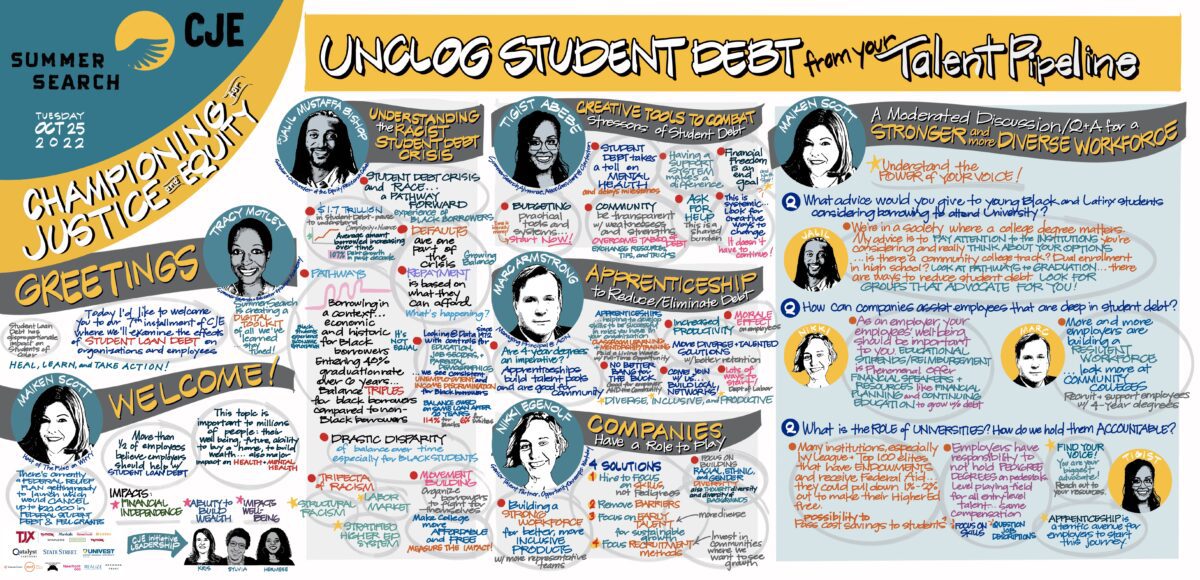
Our full ‘Unclog Student Debt From Your Talent Pipeline’ event illustration. Click to view full-sized graphic.

